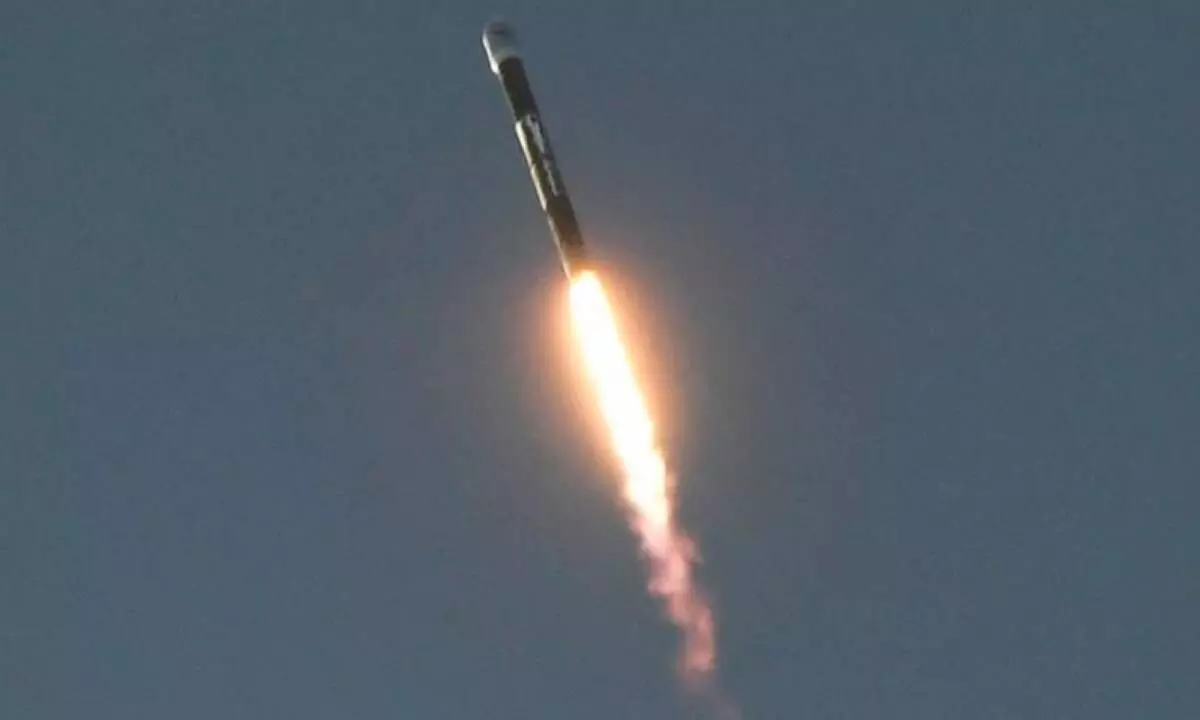Race for space: Relativity's 3D printed rocket to debut this summer
Relativity Space Inc., a Los Angeles-area startup that makes rockets using advanced 3D printing technology, is taking another step closer toward the debut of its Terran 1 craft this summer, a move toward gaining a foothold in the commercial launch industry.
image for illustrative purpose

Relativity Space Inc., a Los Angeles-area startup that makes rockets using advanced 3D printing technology, is taking another step closer toward the debut of its Terran 1 craft this summer, a move toward gaining a foothold in the commercial launch industry.
Pre-launch testing wrapped up last week, and the rocket will be trucked from a facility in Long Beach, California, on May 31 to the launch site at Cape Canaveral, Florida, Chief Financial Officer Mo Shahzad said an interview. The project is about 18 months behind schedule, from an initial target date of 2020.
The Terran 1 is built to carry payloads as heavy as 1,000 kilograms (2,204 pounds) into orbit. The first launch is for demonstration purposes and contracts have been inked with NASA and the Department of Defense's innovation unit for subsequent flights, according to Shahzad.
The company's flagship Terran R rocket, which is under development, is designed to lift 20 times the payload of the Terran 1, making it more attractive for hauling heavy cargo like commercial-grade satellites, CFO Shahzad said. Going forward, "we are prioritizing Terran R" given customer interest in that size of vehicle.
The company, whose workforce has grown five-fold in the past two years to almost 800 people, said it has raised $1.3 billion from backers including initial investor billionaire Mark Cuban, Blackrock Inc., Tiger Global Management LLC and actor Jared Leto.
It's competing in a crowded market of rocket startups and more established aerospace companies such as Elon Musk's Space Exploration Technologies Corp., Rocket Lab USA Inc., Virgin Orbit Holdings Inc., Astra Space Inc. and Jeff Bezos's Blue Origin LLC. Relativity says it can build rockets and launch customer payloads far more rapidly than rivals given its 3D-additive production capacity, with more than 90% of its rockets "printed" by machines, reducing costs compared to traditional manufacturing methods.
Relativity is in the process of moving its Terran R production into a bigger factory near Long Beach Airport, a 1 million-square-foot (93,000 square-meter) lot where Boeing Co. once built C-17 military cargo planes. Relativity has hopes to one day use its 3D-printing technology to establish an industrial base on Mars.
The company had a market value of USD 4.2 billion as of its last fundraising round about a year ago, according to Pitchbook.

